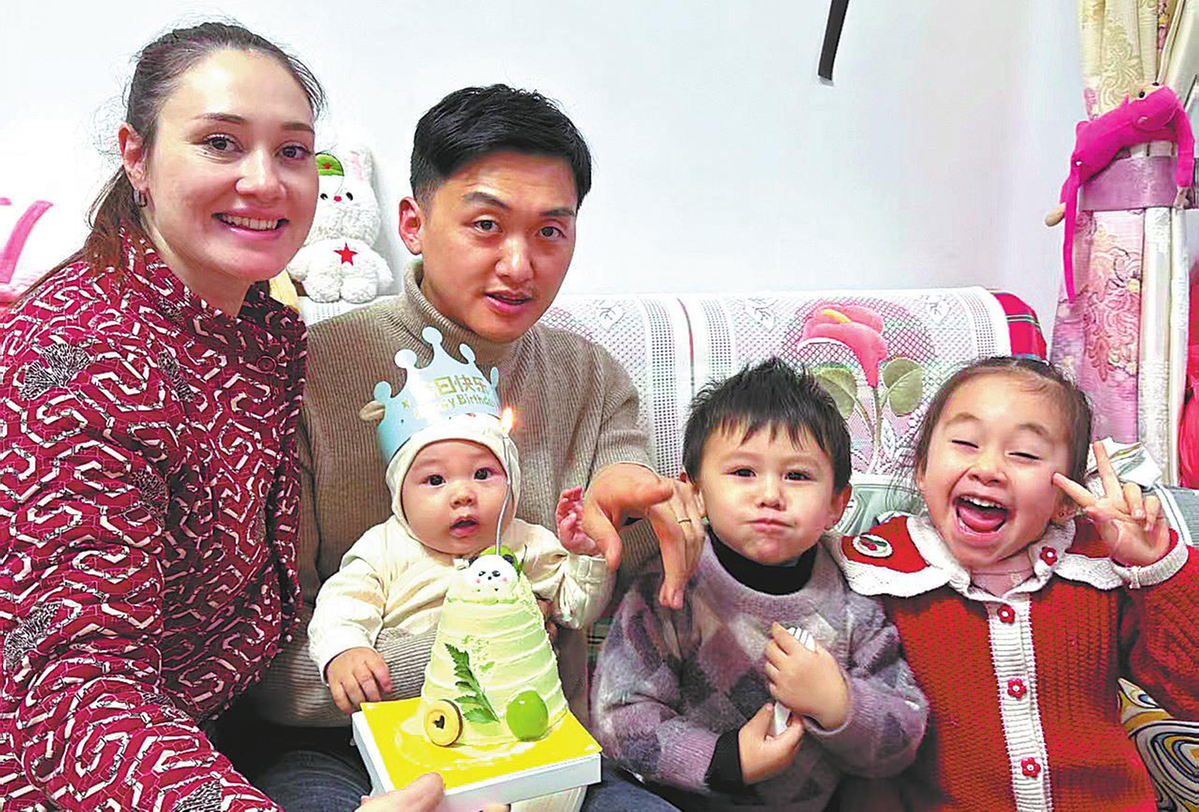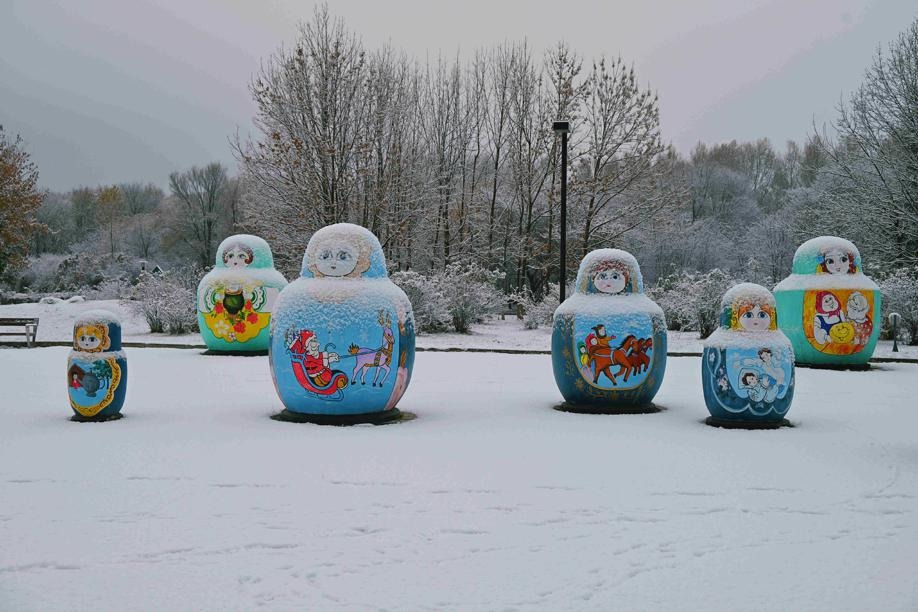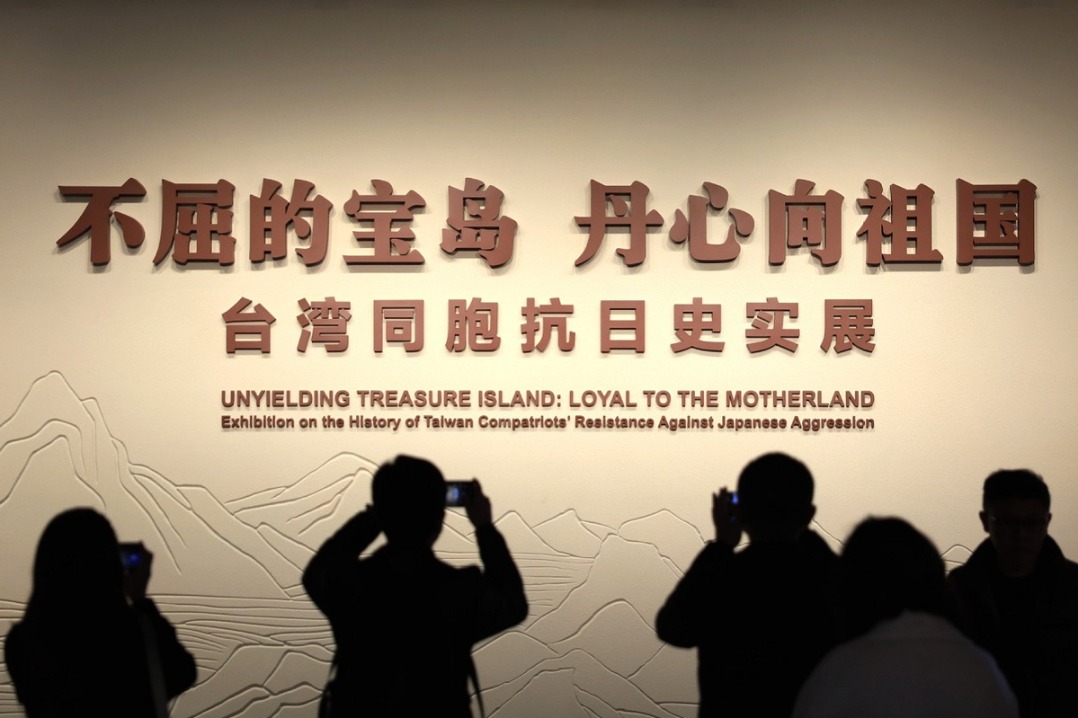A love story that spans distance and cultures
Transnational couple share their experiences with a global audience


Spanning 6,000 kilometers, a couple's journey of love unfolds like a storybook — yet, it is anything but a simple fairy tale.
Han Yanfeng, a veteran of China's military from Linfen, North China's Shanxi province, and Zaruhi Gevorgyan, his Armenian wife from Gyumri, the second-largest city in Armenia, have braved the complexities of a mixed-nationality marriage. Their story, woven together by the threads of the Belt and Road Initiative, is a testament to how love can flourish amid the exchange of cultures and the building of connections.
It began in 2017, when Gevorgyan came to Shanghai International Studies University as an exchange student against the background of closer ties between the two nations. The year marked the 25th anniversary of diplomatic ties between China and Armenia and the two countries deepened their economic and educational cooperation.
There, she met Han, then a fitness instructor in Shanghai. What started as an academic experience turned into a deep, life-changing connection with China.
As Gevorgyan finished her studies in Shanghai, the young lovers hugged and cried at the airport — where Han realized profoundly that nothing could ever separate them. He left his job in China and departed for Armenia months later. From their initial meeting to dating, marriage, and eventually having a child, Han and Gevorgyan's cross-national marriage was not always a bed of roses.
In 2020, while Gevorgyan was pregnant, the COVID-19 pandemic swept the world. Han made the difficult decision to remain in Armenia to support his wife and their unborn daughter.
Then in late September that year, conflicts broke out along the disputed border between Armenia and Azerbaijan, and the fighting came close to the couple's home village.
"I drove through the night, evacuating Zaruhi and her sister-in-law from our village," Han said. "We left just in time — by the next day, it became the center of the conflict."
Along the way, Han witnessed heart-wrenching scenes: families fleeing with whatever belongings they could carry, elderly parents squeezed into cars, and children caught in the chaos.
"It was heartbreaking. As someone from a peaceful country and a former soldier, experiencing this abroad was incredibly painful," he said.
Zaruhi Gevorgyan's brother returned home safely but the scars of the conflicts remained etched in his heart. In an attempt to help him heal, Gevorgyan invited her brother to spend the Chinese New Year in Linfen, hoping that the warmth of Chinese traditions would offer him some solace. "Chinese New Year is so lively, and I knew that in this atmosphere, he could begin to recover," she said, adding that she still remembers decorating the house with Spring Festival couplets and setting off firecrackers. Her brother, startled by the noise, froze.
The sister immediately comforted him, saying, "Don't be afraid. It's safe here — there's no more shelling."
During their time in Linfen, the two families have forged a deep bond, united by their shared experiences and respect for one another's cultures. In the safety and tranquility of Chinese life, her brother began to emerge from his nightmare about the conflict. He became more open, smiling more, and engaging with others. China and Armenia had signed an agreement in 2019 to mutually waive visa requirements for ordinary passport holders, and by January 2020, the agreement was in effect. Since then, the couple has frequently traveled between the two countries, sharing their cross-cultural life with a global audience.
They also started posting videos on social media platforms such as TikTok, Instagram and Facebook, showcasing the humorous and heartwarming moments of their everyday life. Viewers from Armenia, China and beyond have gained fresh insights into each other's countries and cultures through the couple's lens. One comment under their video reads: "People in both our countries are modest and kind-hearted. I really hope the world becomes more simple ... I want to travel to Armenia some day in the future."
In 2024, then Chinese Ambassador to Armenia Fan Yong said they are "civilian-diplomats of the two countries".
Gevorgyan also notices how China's increasing cooperation with Armenia is creating more opportunities for cultural exchanges.
After the pandemic, she saw more Chinese people come to Armenia on projects like road construction and electricity grid development. One notable achievement was the completion of the South-North Road project, a vital transport link that connects Armenia's cities and significantly enhances the Eurasian transport corridor.
In September 2023, direct flights between China and Armenia were launched, making travel between the two countries much easier. Gevorgyan was overjoyed. "Earlier, it would take at least 16 hours to get home, sometimes over 30 hours. Now, it's only about five hours, so the distance feels much shorter," she said.
On Aug 31, leaders from both China and Armenia announced the establishment of a strategic partnership, signaling even closer cooperation. Gevorgyan, who is now studying Chinese at Yerevan State University, is determined to contribute to the cultural exchange between the two countries. "China is a country that truly understands the value of peace," Gevorgyan said thoughtfully. "I always think that if the whole world could be as kind and inclusive, our world would surely be a better place.
"I hope China continues to grow stronger, because its prosperity can help small-sized countries like ours create a better future," she added.
Contact the writers at houchenchen@chinadaily.com.cn





































